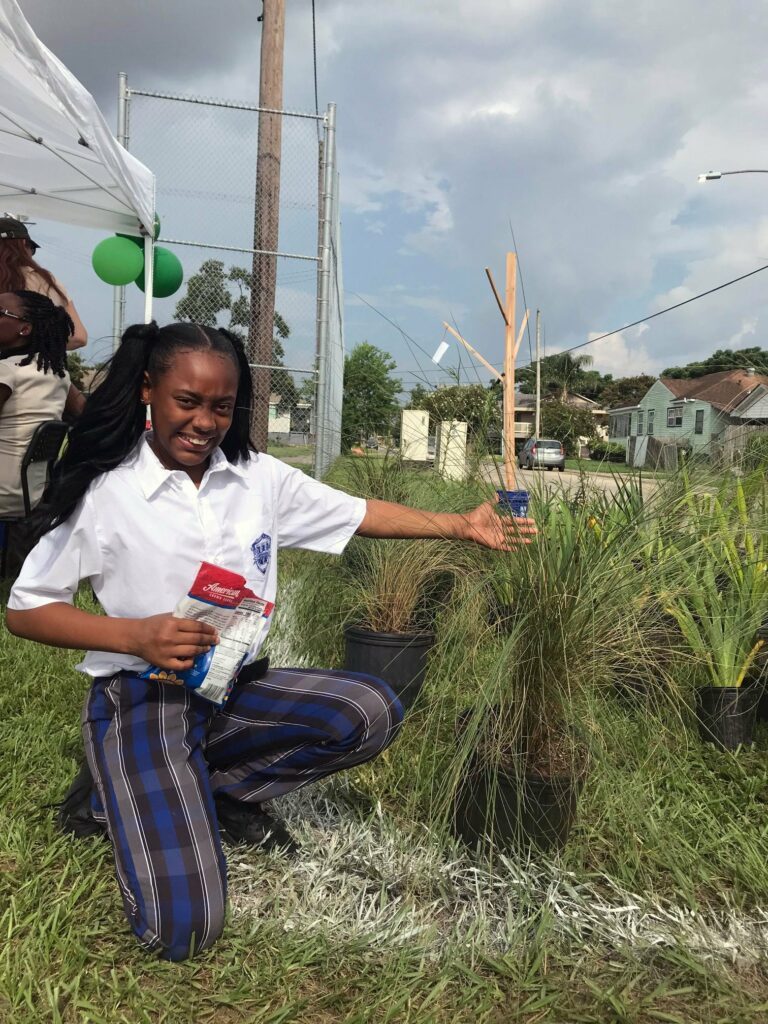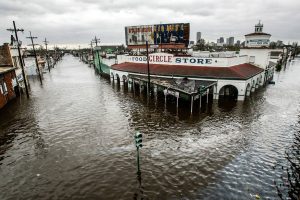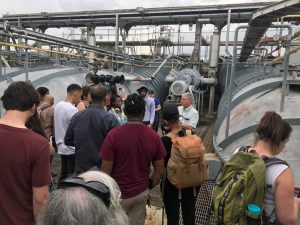
Determined to change New Orlean’s relationship with water, The Water Collaborative of Greater New Orleans was founded in 2017 in response to the devastation caused by Hurricane Katrina. They want to make New Orleans a leader in rights-based water management and to build a culture that can “live, thrive, and love water.” The nonprofit focuses on educating residents about flood solutions, resources, workforce development, and pertinent research. One of the key goals is increased community engagement through programs like Green Infrastructure Champions, which trains residents to take a more active role in managing stormwater runoff. Additionally, their Lead Service Line Abatement Program seeks to identify and replace lead service lines in vulnerable neighborhoods. The Collaborative is also working to raise awareness of the risks associated with flooding, ensuring that residents are better equipped to evacuate and respond when natural disasters strike.

NEW ORLEANS – AUGUST 29: Chest deep water dumped from hurricane Hurricane Katrina collects in the street late Monday afternoon on August 29, 2005 in New Orleans, Louisiana. (Photo by Chris Graythen/Getty Images)
The grassroots group was created by leaders in the water management sector who believe that water management is the best vehicle to address climate change, urban and economic development, and environmental justice simultaneously. The diverse group is building a statewide network of communities impacted by flooding and climate displacement and implementing sustainable and equitable practices in water management. They facilitate outreach and education programs on green infrastructure, sustainable development, and environmental justice, and offer Water and Climate Tours that educate residents and visitors about the impact of climate change on Southeast Louisiana’s water resources. Through their water testing initiatives, The Water Collaborative monitors chemical contamination in Louisiana’s industrial corridor, also known as Cancer Alley, with the goal of empowering residents and elected officials to implement policies that improve public and environmental health.

General Superintendent Bob Turner of the Sewerage and Water Board giving a group tour of Drainage Pump Station 4.